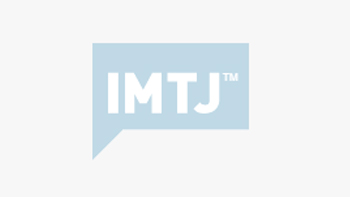Many potential medical tourists are told that the only safe hospitals are those with international accreditation; many Americans are told that they should only ever consider JCI accredited hospitals. Within the medical tourism industry, some would argue that both views are a fallacy.
Many potential medical tourists are told that the only safe hospitals are those with international accreditation; many Americans are told that they should only ever consider JCI accredited hospitals. Within the medical tourism industry, some would argue that both views are a fallacy.
A Minnesota medical tourism agency, Soter Healthcare, has looked at national and international accreditation from a consumer viewpoint and aims to dispel some of the myths on accreditation and certification. The company says, “There is a lot of noise about accreditation in media and marketing surrounding international medical travel. With few clear voices, sorting the message from the madness is challenging.”
“Accreditation, whether regulatory or voluntary, is simply a floor above which a hospital must work. That there are no good, better, best connotations implied or expressed in existing standards. There is a significant trap awaiting patients who believe, either having come to it on their own or through promotion by medical tourism agencies, accreditation by one international body or another equals a standard of excellence.”
“The prevailing view is that international accreditation provides a comfort for international patients. Harvard Medical International cites the focus of this development on its website:” Internationally, the growth of the health care industry has resulted in increased competition, leading hospitals to attempt to differentiate themselves through accreditation and certification by internationally recognized health care evaluators.”
“We often see the comment – We only use JCI accredited hospitals – on the websites of medical tourism agencies. I always enjoy reading that statement, knowing that the company either doesn’t understand accreditation or doesn’t really believe the comment. Accreditation is a means by which the medical community evaluates administration, operations, quality and patient safety. In some cases, local or national regulatory authorities conduct accreditation inspections. In other cases, an independent third-party agency whose report the regulatory agent accepts conducts the review. In America, state health departments regulate hospitals, and the health department can either conduct its own inspections or accept those of an agency. In other countries, the national health ministry generally manages the accreditation process.”
“In medical tourism, accrediting organizations expanded internationally. International accrediting organizations involved in destination medical care fall into three groups: (a) national/domestic agencies, (b) international accreditors, and (c) medical tourism organisations that purport to offer credentialing. The best known of the international entities is the International Society for Quality in Healthcare (ISQua). ISQua does not directly accredit hospitals; rather, ISQua accredits the accreditors.“
“JCI, QHA Trent, and Accreditation Canada International are all reputable international accreditation agencies. Where a national medical system and accreditation systems are strong, such as in countries like Australia, Canada, China, France, New Zealand, the United Kingdom and the United States, international accreditation is rarely considered. There are no JCI accredited hospitals in Australia, Canada, France, Japan, Norway, or the United Kingdom, nor are there any QHA Trent accredited hospitals in the United States, Canada or Australia.”
“None of that means accreditation is not important. It is a beginning stage of reviewing hospital quality for international patients. However, accreditation is not the end point or the distinction.”








 ©2024 All rights reserved LaingBuisson
©2024 All rights reserved LaingBuisson 


